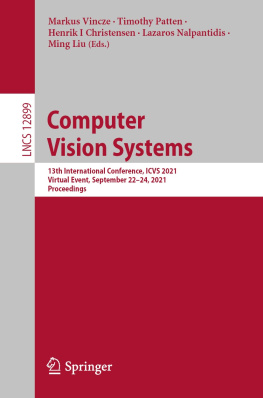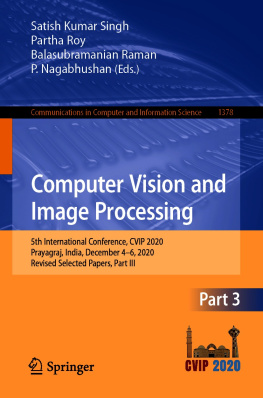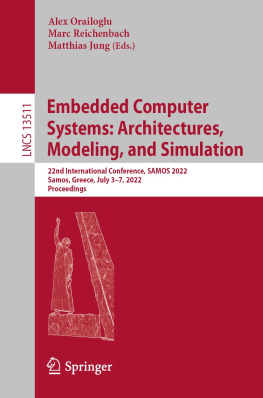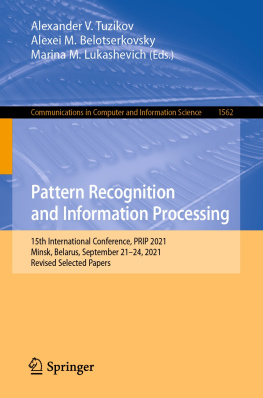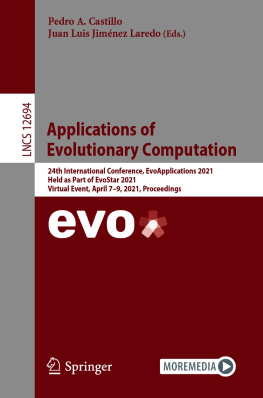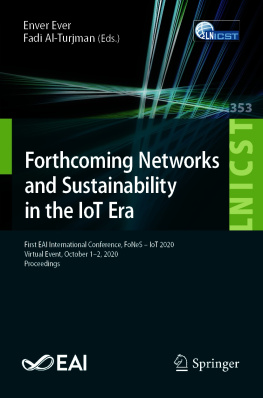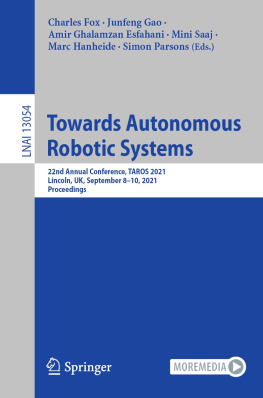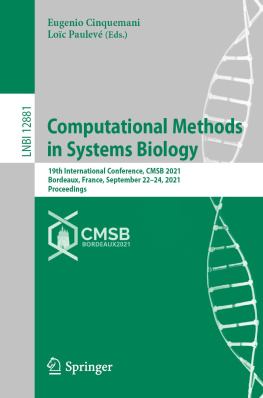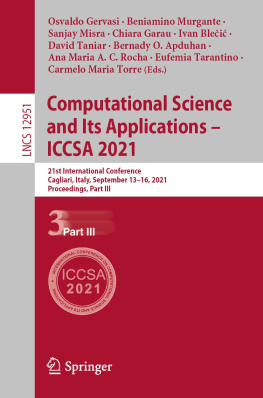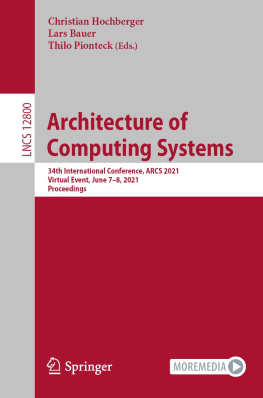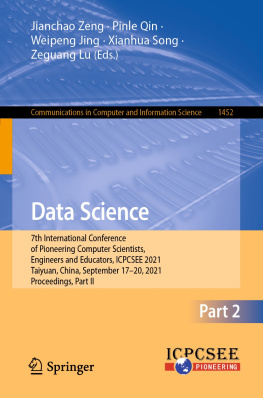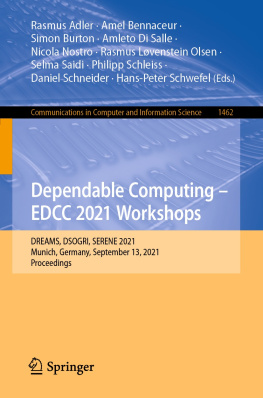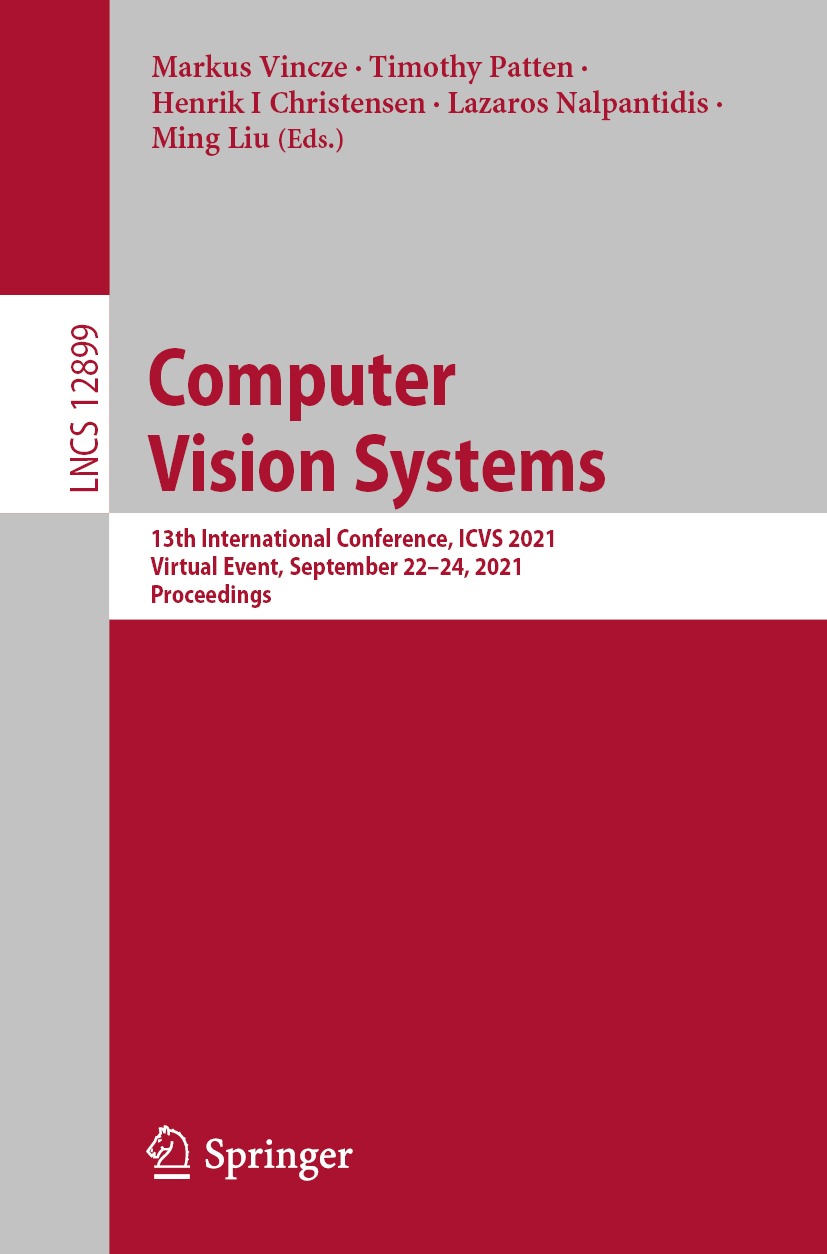Editors
Markus Vincze
TU Wien, Vienna, Austria
Timothy Patten
University of Technology Sydney, Sydney, Australia
Henrik I Christensen
University of California San Diego, La Jolla, CA, USA
Lazaros Nalpantidis
Technical University of Denmark, Kongens Lyngby, Denmark
Ming Liu
Hong Kong University of Science and Technology, Hong Kong, China
ISSN 0302-9743 e-ISSN 1611-3349
Lecture Notes in Computer Science Theoretical Computer Science and General Issues
ISBN 978-3-030-87155-0 e-ISBN 978-3-030-87156-7
https://doi.org/10.1007/978-3-030-87156-7
Springer Nature Switzerland AG 2021
This work is subject to copyright. All rights are reserved by the Publisher, whether the whole or part of the material is concerned, specifically the rights of translation, reprinting, reuse of illustrations, recitation, broadcasting, reproduction on microfilms or in any other physical way, and transmission or information storage and retrieval, electronic adaptation, computer software, or by similar or dissimilar methodology now known or hereafter developed.
The use of general descriptive names, registered names, trademarks, service marks, etc. in this publication does not imply, even in the absence of a specific statement, that such names are exempt from the relevant protective laws and regulations and therefore free for general use.
The publisher, the authors and the editors are safe to assume that the advice and information in this book are believed to be true and accurate at the date of publication. Neither the publisher nor the authors or the editors give a warranty, expressed or implied, with respect to the material contained herein or for any errors or omissions that may have been made. The publisher remains neutral with regard to jurisdictional claims in published maps and institutional affiliations.
This Springer imprint is published by the registered company Springer Nature Switzerland AG
The registered company address is: Gewerbestrasse 11, 6330 Cham, Switzerland
Preface
In order to enable future intelligent machines to understand their environment in a similar manner as that of humans, they should be endowed with the ability to see. Vision is one of the strongest components of perceiving the world, ultimately enabling the interaction with it. During the last decades, developments in various fields of research have significantly pushed computer vision systems to better interpret the world and thus support the operation of advanced machines. However, present artificial vision systems still lack the ability to operate in unconstrained, real-life environments and to cope with novel situations. Tackling and overcoming these challenges constitutes the main mission of the International Conference on Computer Vision Systems (ICVS).
The 13th edition of ICVS was held during September 2224, 2021. In light of the unprecedented global COVID-19 pandemic, ICVS went fully virtual for the first time in its history. Past editions had taken the conference to different countries across multiple continents and brought together researchers from all around the world. Despite the virtual platform in 2021, ICVS remained vibrantly international with authors coming from 16 countries. It is our great hope that for the next edition, we will be able to meet in person in Vienna for ICVS 2023.
ICVS 2021 received 29 submissions, out of which 20 papers were accepted as oral presentations at the main conference. Each paper was reviewed by at least two members of the Program Committee or external reviewers. The authors of accepted submissions were then asked to submit their final versions, taking into consideration the comments and suggestions in the reviews. The best paper of the conference was selected by the general and program chairs, after suggestions from the Program Committee were made. Accepted papers cover a broad spectrum of issues falling under the wider scope of computer vision in real-world applications, including among others, vision systems for robotics, autonomous vehicles, agriculture and medicine. In this volume, the papers are organized into the sections: Attention Systems, Classification and Detection, Semantic Interpretation, Video and Motion Analysis, and Computer Vision Systems in Agriculture.
The technical program of ICVS 2021 was enhanced with three invited speakers. First, Prof. Peter Corke (Queensland University of Technology) described in his talk what is needed by computer vision systems and robotics to operate successfully in the real world. The second invited speaker, Prof. Renaud Detry (UCLouvain and KULeuven), shared his experience on autonomous robot manipulation for planetary and terrestrial applications. Finally, the third invited speaker, Dr. Donald Dansereau (University of Sydney), explored in his talk recent developments in the emerging field of robotic imaging, bringing together optics, algorithms, and robotic embodiment to allow robots to see and do.
The conference also hosted two workshops, which were organized in conjunction with the main conference. The Workshop on Object Recognition and Manipulation, organized by Markus Vincze, Mihai Andries, Andrea Cavallaro, Krystian Mikolajczyk, and Calli Berk, brought together projects sponsored by the CHIST-ERA scheme on Object Recognition and Manipulation by Robots: Data Sharing and Experiment Reproducibility. This workshop outlined the research advancements by the projects on the recognition and manipulation of objects in the context of robotics. The Workshop on Traffic Infrastructure Mapping and Automated Damage Assessment Systems was organized by Matthias Rther. This workshop engaged the current research on mobile data capture, automated data processing and data management systems with the purpose of digitizing traffic infrastructure and assessing their condition.
We wish to thank the Robotics Institute of the University of Technology Sydney, Australia, and the Automation and Control Institute of TU Wien, Austria, for the institutional support. We express our sincere thanks to all the people who contributed to the organization and success of ICVS 2021; in particular, the 41 members of the Program Committee, external reviewers, invited speakers, workshop organizers, our secretary, as well as all the authors who submitted their work to and presented it at ICVS 2021. Finally, we thank Springer for publishing the proceedings in the

